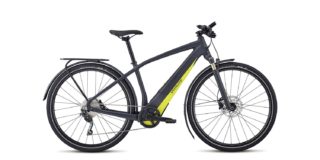For a hilly area should motor torque be the biggest deciding factor or speed range?
do they go hand in hand ?
I would assume the lower newton meters of torque could cause a motor to overheat or become sluggish.
What made the me ask the question is looking at the Vardo 4.0 (72 Newton Meters) Vardo 3.0 ( 90 Newton Meters )
the Vard 4.0 is a class 3 and Vardo 3.0 is a class 1
do they go hand in hand ?
I would assume the lower newton meters of torque could cause a motor to overheat or become sluggish.
What made the me ask the question is looking at the Vardo 4.0 (72 Newton Meters) Vardo 3.0 ( 90 Newton Meters )
the Vard 4.0 is a class 3 and Vardo 3.0 is a class 1

